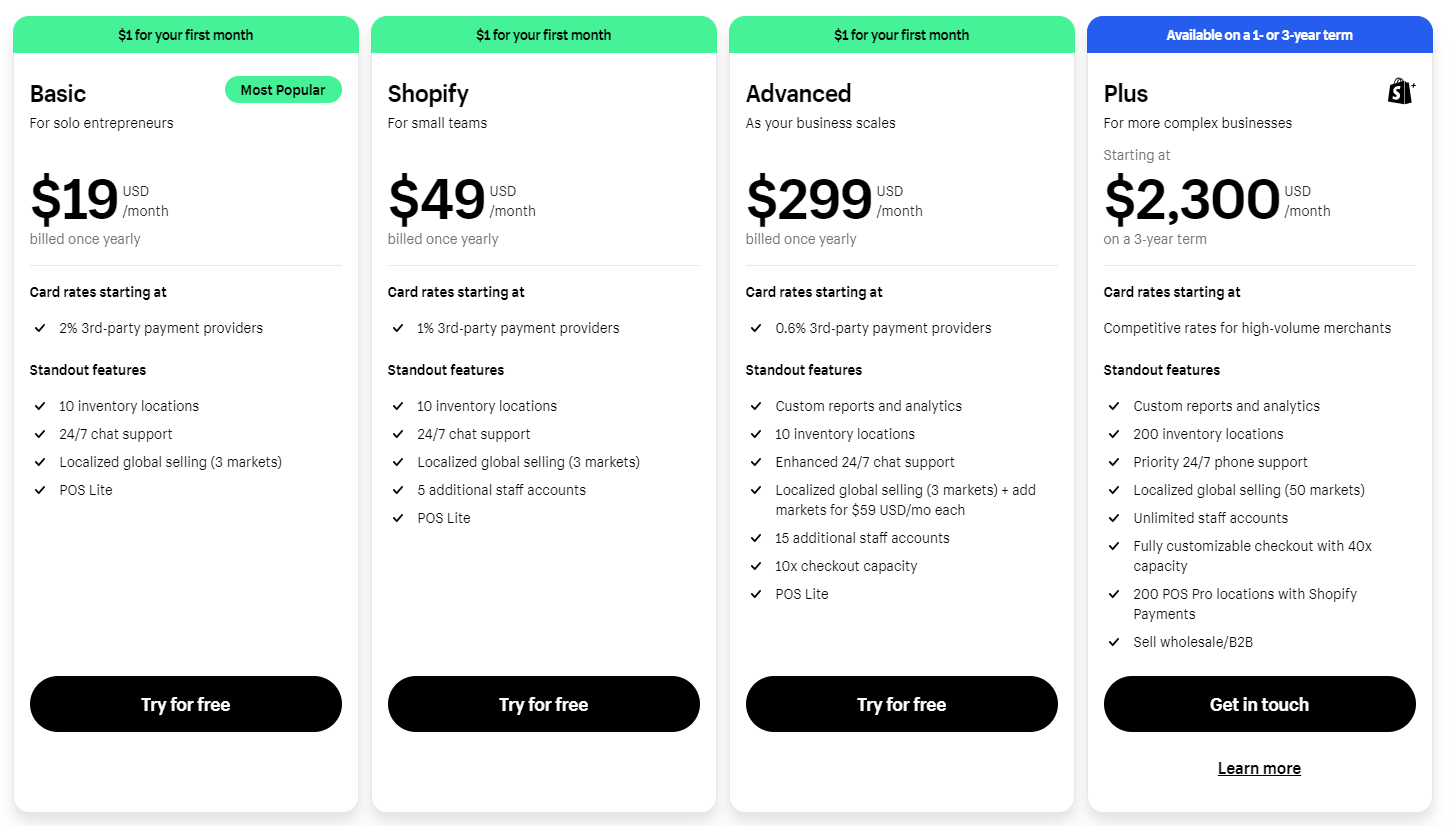
Amazon seller insurance sounds like a good idea for any seller on the marketplace. But is it, really? After weighing the requirements and cost, is it still worthwhile?
In this post, we’ll go over what Amazon seller liability insurance is, and what different types exist. By giving you the rundown, our hope is that you can get an idea of your options. Then you can decide whether it’s prudent for you to investigate further. Plus, with the variety available, we hope that you can find an option that works well for you.
Understanding Amazon Seller Insurance
What is Amazon Seller Insurance?
Insurance for Amazon sellers covers a range of products that the company created to help sellers to effectively manage risks. We all know that selling anywhere online carries inherent risks. These policies extend coverage to protect sellers in the areas of inventory loss, product liability, and third-party claims.
Insurance, in general, exists to protect entities from financial losses. The insurance itself, of course, costs money. So, you need to assess the risks you or your business faces. Then you asses the costs of the insurance. Finally, you decide if buying insurance gives you a better return. This is based on the likelihood that the risks will have a negative impact.
Importance of Amazon Seller Insurance
Not just insurance itself but the right kind and enough of it is important. All of this hinges on three main factors. The first is what unexpected events you are anticipating. The second is what negative impact these events are likely to have. Third is how bad the effects are likely to be.
That said, it’s not all about what we generally recommend. Amazon requires any seller on their marketplace who is doing over $10,000 in gross sales to have seller insurance. This protection can not only give you peace of mind, but actually save your business. Amazon insurance offers many benefits. The following are just examples of how sellers mainly can enjoy:
- Protection against potential liabilities involved in operating a storefront on Amazon, including bodily injury, property damage, and product liability claims;
- Protection against financial loss through Amazon paying valid small claims, without the need for the seller to reimburse the company;
- Comprehensive coverage through the Amazon Insurance Accelerator program, negating any need for separate insurance to cover specific areas of liability;
- Coverage for products that are related to the seller’s Amazon business but transacted outside of the Amazon platform; and,
- Considering the above, time and costs savings from all-encompassing coverage, plus being affordable in the first place.
(Note that small claims refer to those amounting to no more than $1,000.)
Legal Requirements for Amazon Sellers Regarding Insurance
Amazon seller insurance requirements differ for Individual sellers and those with Professional accounts. A Professional seller, which is who we recommend get Amazon insurance, needs liability coverage.
Liability Coverage
Amazon requires that Professional sellers get at least $1 million in coverage. This coverage needs to apply to the broader categories of property damage, product liability, contractual coverage, operations, and personal and bodily injury. You can always get business insurance outside of Amazon. Be careful, however, because not all general liability policies include product liability coverage.
Whatever insurance you purchase, you must insure Amazon as well. This means that you need to put down Amazon and its assignees as additional insured parties on the policy. This protects the marketplace from claims against them resulting from your actions. Your insurance then covers them in case, for example, they need to pay legal costs for their defense in court. It also covers them, at least in part, if they need to pay a settlement.
If you get insurance from a third party, Amazon will probably ask you to send them proof of coverage. Usually, this means not just a photocopy of a page in your policy, but an official certificate of insurance.
Types of Insurance Coverage for Amazon Sellers

General Liability Insurance
Amazon requires many sellers to take out a general liability policy. This type of insurance provides protection when a seller gets hit with the more common third-party lawsuits. These include personal injury and product liability. An example of common personal injury is a slip and fall lawsuit.
Product Liability Coverage
General liability insurance also usually includes product liability coverage. This offers protection against a range of claims relating to harm that your product caused. This helps you stay protected when your business needs to pay legal fees. It can also help you to cover medical fees related to injury claims from a defective product. The insurance also covers claims of damage to property caused by your product.
Specifically, the injuries and damages covered usually must relate to a product’s faulty design or poor manufacturing. In some cases, you can be sued for the way you marketed the product. For instance, you might fail to put clear warnings on it or include clear instructions. Note that all of this applies even if you did not design or make the product or create its marketing materials.
General liability insurance is also good for advertising injuries. This relates to claims that you stole an idea or that your advertising infringed on a copyright. It also covers lawsuits in the areas of libel, slander, and invasion of privacy.
Business Owner’s Policy (BOP)
A business owner’s policy is a combination of general liability insurance and commercial property insurance. The Amazon seller insurance cost for business owner policies, also known as a BOP, is often lower. It’s the more cost-effective option because companies often offer the bundle at a lower rate.
Commercial property insurance covers inventory loss and damage, property damage lawsuits, and business interruption. Inventory loss and damage means when weather or accidents, for example, damage your products in a warehouse. Property damage lawsuits can come when customers claim that your product damaged their property. For example, someone buys a dishwasher from you and it floods their kitchen. Business interruption refers to anything that causes you to stop doing business for a length of time. The insurance covers the sales and profits you lost, up to the limit of your coverage, for that period.
Commercial property insurance can also cover damage to business equipment and even a building you own. That is, if it’s related to your business, like it’s your office or warehouse. Common coverage includes fire and burst water pipes. The insurance can also help you pay for operating expenses and lost income.
Additional Insurance Coverage Options for Amazon Sellers
Commercial Auto Insurance
Commercial auto insurance can help protect you and any employees you have. The insurance covers bodily injury and property damage claims resulting from accidents involving the vehicle. Note that this only applies when using a vehicle owned by the company for business purposes.
Workers’ Compensation Insurance
Workers’ compensation is a type of insurance that most states require. This only applies to Amazon sellers if they have employees. If you hire only freelancers, you will not need this. Note, however, that it can protect you as a sole proprietor business owner. This is because sometimes, personal health insurance can deny certain work injury costs. Workers’ comp, as it is often called, is amazing when you need to cover medical expenses and disability benefits for employees alongside employer liability insurance.
Cyber Liability Insurance
Cyber insurance covers you in case of data breaches and cyberattacks. We recommend that every Amazon seller consider this insurance. No matter how small your shop is, you will likely handle sensitive customer information like credit card numbers. With the new privacy laws, a breach or mishandling of any personally identifiable information can get you into big trouble. This means stolen names and addresses, not just payment details, can cost you big time.
Cyber liability insurance is great for help with fraud monitoring, customer notification expenses, and even dealing with cyber-extortion demands. In today’s world, that’s a real risk that you don’t want to ignore.
Commercial Umbrella Insurance
Commercial umbrella insurance is also known as excess liability insurance. It extends the coverage of your general, employer’s, or commercial auto insurance policy. The extension depends on the limits of your policies and apply once a claim goes over these limits. Umbrella insurance is really useful when you risk facing larger customer or employee injury and property damage lawsuits.
Cost of Amazon Seller Insurance

Amazon seller insurance cost considerations can be serious. Not every seller has wide profit margins. This is why you should really know the basics of what can affect your insurance costs. Getting the more common types of insurance coverage is fairly simple. Consider, however, the following major factors.
The insurance company you approach will most likely quote you based on your annual revenue. Make sure that you give them as accurate a quote as you can so they can make a fair computation. Your coverage depends on this, and you don’t want to find yourself with insufficient coverage.
The typical range we will give you is $500-$1,000 per year. This is based on product liability insurance, which is what Amazon most commonly requires. Note that a company can charge more or less depending on your actual sales numbers.
We think this Insureon article is a good source of averages and other Amazon seller insurance cost data. The company can also help you get quotes from different insurance carriers so you can compare specific offers.
How to Acquire Amazon Seller Insurance
Once you have done your research on the most trusted Amazon insurance providers, you can get quotes. You must always be sure to tell them that you are looking for insurance for Amazon specifically. This will help them to give you the options that meet Amazon’s requirements. Then, you can make your selection.
Application Process and Required Documentation
Amazon seller insurance requirements are different from the average business. This means that you might need to prepare additional documentation. You will also need to provide Amazon with certain documentation, like a certificate of insurance. Generally, however, you must have your business information ready. Prepare financial records, as well. The provider will need the basic numbers like revenue and employees to give you a proper quote.
Many companies nowadays can process applications online, which makes it so much easier. Policy payments are also commonly accepted online. So, the process usually looks something like this:
- Submit the requested documents.
- Wait for the company to analyze the information and return with a quote. (In many cases, it only takes a minute.)
- Select from the recommended policies.
- Pay for your chosen policy.
- Download your certificate of insurance.
Legal Obligations and Liabilities Without Proper Insurance
Amazon requires only certain sellers to have insurance coverage. However, we recommend that all Amazon sellers get insured.
Risk of Financial Losses Due to Negligence or Accidental Damages
When you do not have insurance, you as the business owner, are at risk. You may not be personally responsible for all legal obligations and liabilities. Your business, however, will directly suffer from all that arises out of harm and damages. In many cases, uninsured businesses are forced top close after being slapped with legal fees and damages. Insurance helps you cover the costs that could kill your business.
Potential Legal Consequences and Penalties for Non-Compliance
Every Amazon seller signs an agreement before being allowed to sell on the marketplace. That agreement includes a clause about what seller insurance is required and under what circumstances.
When Amazon identifies a seller with more than $10,000 in sales, they will usually send an email. Amazon will ask for proof of insurance because liability insurance is not optional at this level of sales. Amazon will give the seller about 30 days to send them a valid certificate of insurance. Any seller who does not comply will normally soon find their selling account suspended.
Amazon can lift the suspension only after the seller gives them the proof. They are really strict about it because without insurance, Amazon becomes liable for paying out all seller settlements that sellers can’t pay.
Importance of Regular Policy Review and Updates
Make sure that you are staying up to date will any amendments to your seller agreement. Amazon can make changes to insurance requirements at any time. If you are late to the party, you might find yourself facing additional, and likely costly, consequences.
What Is EcomBalance?

EcomBalance is a monthly bookkeeping service specialized for eCommerce companies selling on Amazon, Shopify, Ebay, Etsy, WooCommerce, & other eCommerce channels.
We take monthly bookkeeping off your plate and deliver you your financial statements by the 15th or 20th of each month.
You’ll have your Profit and Loss Statement, Balance Sheet, and Cash Flow Statement ready for analysis each month so you and your business partners can make better business decisions.
Interested in learning more? Schedule a call with our CEO, Nathan Hirsch.
And here’s some free resources:
- Monthly Finance Meeting Agenda
- 9 Steps to Master Your Ecommerce Bookkeeping Checklist
- The Ultimate Guide on Finding an Ecommerce Virtual Bookkeeping Service
- What Is a Profit and Loss Statement?
- How to Read & Interpret a Cash Flow Statement
- How to Read a Balance Sheet & Truly Understand It
Conclusion
We highly recommend that you always deal with reputable companies. When it comes to financial and legal matters, we stress it all the more. Insurance falls under both of these categories. So, make sure you are getting insurance from a reputable company so you can be sure you are truly protected.







